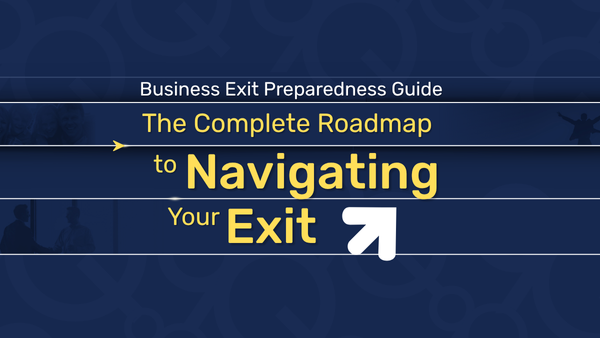Let’s talk about a familiar situation for many.
Your advisor missed three calls this week. Not because they’re busy, but because they’re juggling 23 other deals just like yours. Here’s why that’s costing you money.
In the professional services world, attention has become a scarce and valuable currency. Yet many founders don’t realize how their advisor’s divided attention directly impacts their exit outcomes. The research is clear: when attention is fragmented across multiple complex tasks, performance deteriorates significantly.
The Science of Divided Attention

Modern cognitive research reveals fundamental limitations in how our brains handle multiple complex tasks. Neuroimaging studies indicate that key brain systems involved in executive control inherently work best when focused on single tasks, and the human brain has evolved to single task. When professionals attempt to multitask, they’re actually switching between tasks—a process that creates measurable performance costs.
A rich body of research in psychological science has documented that the behavioral costs of task switching are typically unavoidable: individuals almost always take longer to complete a task and do so with more errors when switching between tasks than when they stay with one task.
For complex professional work like exit advisory, these effects are magnified. In business settings, the tasks that workers take on are typically neurologically complicated, and multitasking can actually hinder productivity and increase the likelihood of mistakes.
How Deal Volume Kills Quality

The impacts of advisor multitasking extend far beyond simple time delays. Research shows that divided attention creates cascading effects on performance quality:
Reduced Accuracy:
Media multitasking reduces both accuracy and confidence in predicting impact on task performance. When advisors manage multiple deals simultaneously, their ability to accurately assess market conditions, buyer motivations, and deal risks diminishes.
Impaired Problem-Solving:
Multitasking requires more time to accomplish tasks and deteriorates creativity, but not correctness of the answers in case of simple tasks. Interestingly, in the case of multitasking under time pressure, the performance was worse. Exit advisory requires creative problem-solving to structure deals that meet unique founder needs—precisely the type of work most damaged by divided attention.
Increased Error Rates:
Research has shown that students who multitask in class tend to have lower GPAs, and adults may also experience lower performance while multitasking. In high-stakes business transactions, even small errors can cost millions.
Compromised Focus:
Some research suggests that multitaskers are more distractible, and they may have trouble focusing their attention even when they’re not working on multiple tasks at once. Advisors handling many deals may struggle to give your transaction the focused attention it requires.
The Client Satisfaction Connection

Professional services research establishes clear links between attention quality and client outcomes. Studies find that the job satisfaction level of professional staff is the strongest determinant of the aggregate satisfaction level of clients; client satisfaction level, in turn, predicts the rate of clients’ subsequent compliance.
Service quality research identifies specific factors that drive client satisfaction in professional relationships:
Empathy refers to the quality of individualized attention given to customers. The service providers go an extra mile to make the customer feel special and valued during the interaction. When advisors spread attention across too many deals, this personalized service disappears.
Responsiveness refers to the institution’s ability to provide fast and good quality service in the period. It requires minimizing the waiting duration for all interactions between the customer and the service provider. Overloaded advisors inevitably become less responsive.
Empathy requires visualizing the needs of the customer by assuming their position, including courtesy and friendliness of staff, understanding the specific needs of the client, giving the client special attention, and taking time to explain the practices and procedure.
Red Flags Your Advisor Is Spread Too Thin

Research on attention and performance provides clear indicators when professionals are operating beyond their cognitive capacity:
Delayed Responses:
When advisors consistently take longer to respond to communications, it often signals cognitive overload rather than simple busyness.
Generic Communications:
Many brokers are using the same pitch deck template, the same buyer list, the same cookie-cutter approach for every single one. Template-driven communications indicate insufficient time for personalized attention.
Missed Details:
Small errors or oversights that weren’t present in early interactions often signal attention deficits caused by task overload.
Reduced Availability:
Difficulty scheduling meetings or shortened meeting durations can indicate an advisor managing too many concurrent deals.
Superficial Analysis:
When market analysis, buyer assessments, or deal structuring recommendations lack depth or customization, it often reflects insufficient attention allocation.
The Economics of Exclusive Attention

While founders might assume that advisors handling more deals offer better market insights or efficiency, research suggests the opposite. When employees become totally immersed in their work and enjoy it intensely, they are more likely to excel at what they do. During flow, performance is automatic, and one has a sense of confidence and ease.
Studies show that flow is a desirable state not only for task performance but also for creativity, productivity, and service quality. Advisors managing fewer deals can enter this optimal performance state more readily.
The financial implications are significant. Higher-quality advisory attention typically translates to:
- Better buyer identification and qualification
- More effective negotiation strategies
- Superior deal structuring and terms
- Reduced time to close
- Higher satisfaction with outcomes
Questions to Ask Potential Advisors

Given the research on attention and performance, founders should directly assess advisor capacity:
- Current Deal Load:
“How many active deals are you currently managing?” Research suggests that cognitive performance degrades with increased task complexity. - Team Structure:
“Who specifically will be working on my deal day-to-day?” Understanding attention allocation within the advisory team matters. - Communication Protocols:
“What’s your typical response time, and how do you prioritize urgent issues?” This reveals attention management systems. - Deal Capacity:
“What’s the maximum number of deals you take on simultaneously?” Advisors with hard limits demonstrate understanding of attention constraints. - Recent Performance:
“Can you share examples of how dedicated attention improved outcomes in recent deals?” Quality advisors can articulate the connection between focus and results.
The Premium Value of Focused Advisory

Top-tier financial advisors’ superior resources, strong networks, and market dominance should lead to lower information asymmetry and a better match between selling and buying firms, more accurate valuation of assets, and synergistic gains. However, these benefits only materialize when advisors can dedicate sufficient attention to your specific situation.
Research on professional services consistently shows that paying premium fees for focused, dedicated attention often yields better net results than working with high-volume, lower-cost providers. The cognitive limitations of multitasking mean that advisory quality cannot be scaled indefinitely without performance degradation.
Making the Attention Investment

The evidence is overwhelming: divided attention produces diluted results. Multitask working behavior exerts an impact on overall work performance particularly, on work quality, productivity, and working memory.
When selecting exit advisory, founders should prioritize advisors who:
- Limit concurrent deal volume to maintain quality
- Demonstrate deep understanding of attention management
- Provide evidence of superior outcomes through focused service
- Structure engagement models that preserve advisory attention
Your exit represents years of work and potentially life-changing wealth. The research shows that the quality of attention you receive directly impacts the quality of outcomes you achieve. Don’t let your advisor’s divided attention dilute your results.
Works Cited

This article incorporates research from cognitive psychology, organizational behavior, and professional services literature.
Key sources include studies published in PMC (PubMed Central), Frontiers in Psychology, International Journal of Educational Technology in Higher Education, and professional services industry analyses. Research methodologies encompassed controlled experiments measuring multitasking effects, longitudinal studies of professional performance, and systematic reviews of attention and task-switching literature.
Notable findings come from neuroimaging studies examining brain function during multitasking, workplace studies measuring the relationship between attention allocation and performance outcomes, and service quality research establishing connections between provider attention and client satisfaction. The synthesis draws from both laboratory research on cognitive limitations and field studies of professional service delivery to provide practical insights for founders evaluating advisory relationships.







